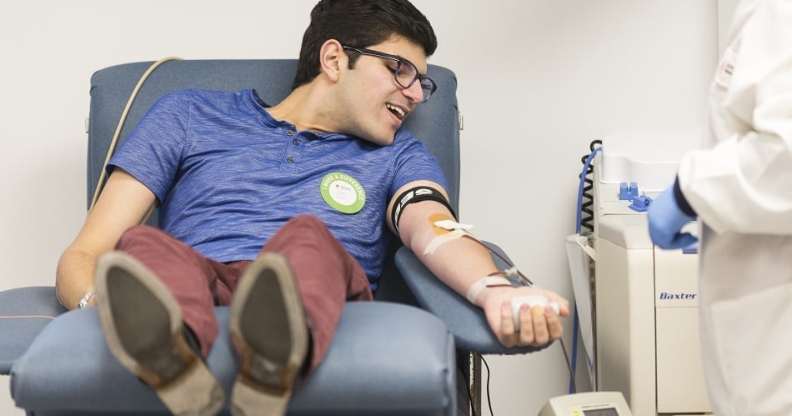Denmark announces gay men will be allowed to donate blood by 2019

Denmark is modernising its blood donation system to “better embrace gender equality” by allowing gay men to donate blood.
The Copenhagen Post reported that despite activists campaigning for many years, fear of the HIV virus meant that gay men have previously been prohibited from donating.
But the Danish health minister Ellen Trane Nørby revealed that the new law will come into effect sometime in 2019.
“The authority [patient safety] has found a model we feel is safe and we will therefore incorporate it into Denmark. All safety mechanisms in our blood donation system are built on trust and we have some very advanced tests that screen the blood,” Nørby told Danish news site DR Nyheder.
The new legislature will mean gay men will be able to donate blood if they haven’t had sex with a man within a period of four months.
But the period of time is voided if the donor is in a relationship with one partner.
Last year in the UK the government relaxed rules that banned men who have sex with men from giving blood.
Blood donation rules across the UK previously banned men who have sex with men from giving blood if they have been sexually active in the past 12 months.

The blanket deferral period for gay men, which was intended to help prevent HIV contamination of blood supplies, came under increasing scrutiny for failing to reflect modern screening capabilities.
Changes announced in July 2017 shortened the deferral period to three months – meaning gay men are only required to abstain from anal or oral sex for 12 weeks before being able to give blood.
The government said the changes, which were recommended by the Advisory Committee on the Safety of Blood, Tissues and Organs (SaBTO) , were “based on the most up to date scientific evidence and medical advances, which will offer more people the opportunity to donate blood without affecting the safety of the blood supply”.

